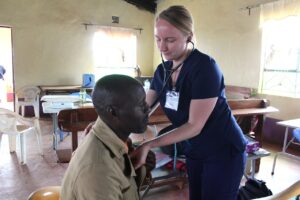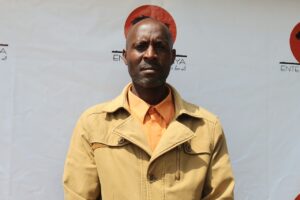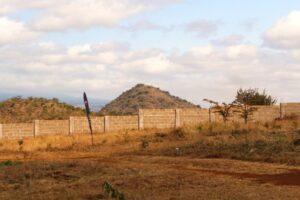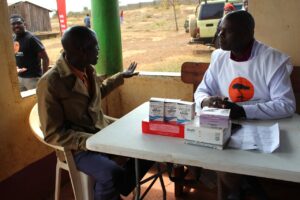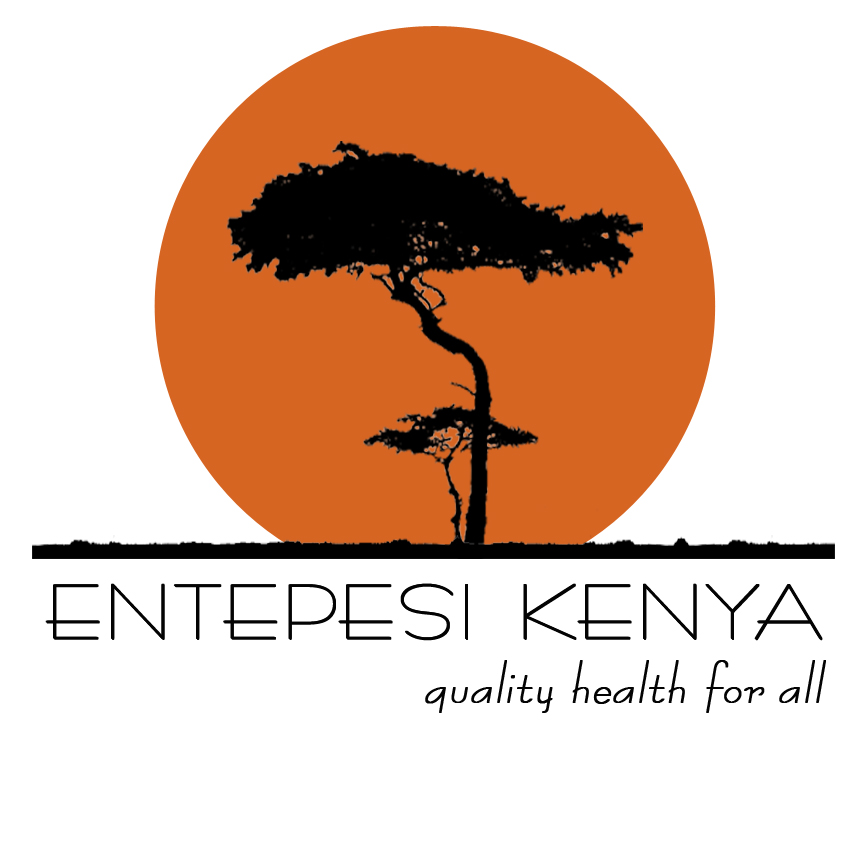Where the Road Ends, We Keep Going – Olkaria, Kajiado
On June 19, 2025, our team from Entepesi Kenya set up a free medical outreach in Olkaria, Ngama — one of 12 medical camps we’ve held so far across Kajiado South.
By the end of this journey, we will have reached over 2,500 people with free medical care and educated more than 2,000 schoolchildren on menstrual hygiene. But for us, the real impact isn’t just in numbers — it’s in stories like Joseph Lenkari’s.
Joseph is 46 years old, married, and a father of four. He’s lived in Olkaria all his life and serves as one of the respected community representatives. When we spoke to him during our outreach, he was full of gratitude, but also burdened by the deep challenges his people face every day.
Seated just behind the church where we were conducting the medical camp — the Entepesi Kenya media banner behind him and the afternoon sun casting golden light across the grounds — Joseph reflected on the day.
“We are here today because of a free medical outreach brought to us by Entepesi Kenya and partners,” he said. “We are grateful that our people are receiving medical care. We’ve seen different treatments — eyes, joints, fever, even dental. Our people showed up in numbers because we received communication ahead.”
But after thanking our team, Joseph opened up about the daily struggles that tie closely to health and well-being in this remote area.
“As a community, we face many challenges. The biggest is water. We walk many kilometers to rivers to fetch it. But that same water is used for irrigation, and wildlife drink from it too. There’s a lot of human-wildlife conflict. And even though we’ve had healthcare here today, our health problems always come back because the water is not clean,” he said.
“Sometimes organizations bring us water treatment medicines, but it’s not sustainable. The distance is too long, and the competition with animals is real. If we had clean water, our health problems would reduce in a big way.”
His words were calm, but the weight of their meaning was heavy. Every issue Joseph mentioned — water, distance, education, poor roads — is a health issue in disguise.
“We also have very few toilets,” he said. “Our women suffer, especially during childbirth. The hospitals are far, and the roads are poor. For our small children, we have no nursery schools. Primary schools are very far — sometimes over 5 kilometers away. We try to pay teachers in the church for nursery classes, but even that is hard because of poverty and drought.”
And then Joseph said something that struck us deeply:
“I thank God that you, Entepesi Kenya, have witnessed the distance when coming here. So you can imagine how it is when it rains.”
We had driven for more than 40 minutes over rocky, dusty, unmarked roads to reach Olkaria. And yes, we could imagine. Because what’s a rough ride for us is a daily reality for this community — for expectant mothers, schoolchildren, the elderly. When it rains, the roads disappear. Life, in many ways, pauses.
“We have heard a lot about you,” Joseph added. “And we kindly ask that this should not be the end of your visits. Our people still have hope.”
His final plea wasn’t just for continued medical outreach, but for deeper partnership and long-term change. “As Olkaria community, I insist — clean water is a very big need. If we get clean water, we will feel like we have been healed. Our children will go to school, our women won’t walk long distances. Most of our problems will be solved.”
Joseph’s story is not unique — it echoes across the many places we visit. But it’s voices like his that remind us why we do what we do.
This is why the medical camps matter. They go beyond treatment. They make the invisible visible and ensure no one is left behind, no matter how far off the map they live.
We thank our dedicated partners for walking this journey with us:
Ministry of Health – Kajiado County, Rocky Vista University, Hands for Health, Kilimanjaro Mission Hospital, and Amref Health Africa in Kenya.
With you, we’ve reached families, revived hopes, and planted seeds for long-term change.
